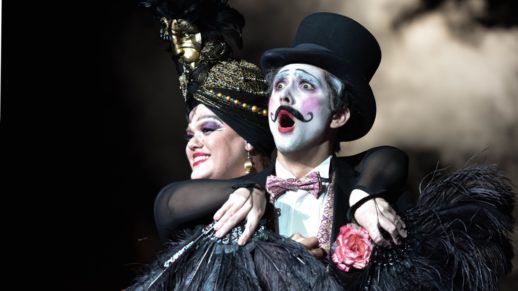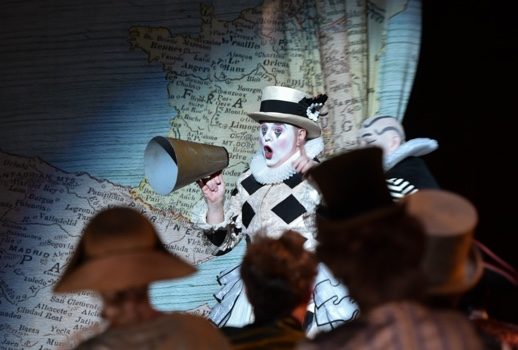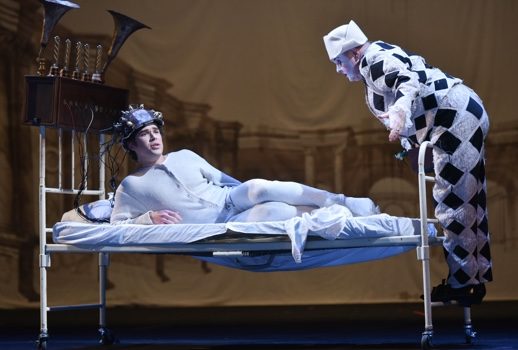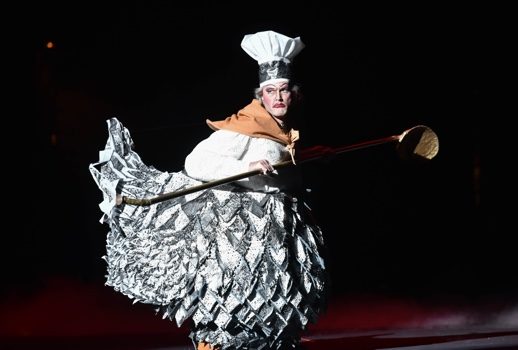
Maybe more so: previous festivals, while featuring bold new works, included a classic presented at Opera Philadelphia’s home theater, the Academy of Music. 017 had Die Zauberflöte; and O18 brought Lucia di Lammermoor. In both cases, the productions were interestingly idiosyncratic, but the material was, of course, comfortably familiar.
This year, even that “big ticket” Academy opera is daring—Prokofiev’s The Love for Three Oranges, largely known at least in the U. S. only through a short orchestral march that vividly displays the composer’s signature propulsive energy. Seen here, presented in a snappily colloquial English translation by David Lloyd-Jones and showcased in a wildly imaginative production by director Alessandro Talevi, Oranges is never less than extravagantly entertaining theater. But I’m only intermittently convinced that it’s more than that.

Yet underneath all this wackiness are glimmers of something more serious. A collage of historical periods, including some commedia dell’arte characters recalls Strauss’s Ariadne auf Naxos, written a decade or so earlier; in Talevi’s production, a kind of pan-European style (including a wheelchair bound Prussian general) sharpens that connection. Ariadne is, fundamentally, about old orders giving way to new ones. Perhaps there’s some of that in Oranges, too?

Midway through the first act, I thought I might be watching a mashup of Dürrenmatt’s Der Besuch der alten Dame and Disney’s Beauty and the Beast. Fabulous designs (scenery by Justin Arienti, costumes by Manuel Pedretti, lighting by Giuseppe Calabrò, “action” by Arthur Braun) bring an almost Julie Taymor-esque level of spectacle—sometimes distractingly so.
But it’s hard not to be enchanted by the sheer theatricality of it, and the entire company throw themselves into every challenge with complete commitment. As a score, Oranges impresses most through Prokofiev’s vigorous, rhythmically sprung orchestral music (including that famous march). Lyricism is in short supply, and there aren’t many extended or memorable vocal passages.

Three cheers also for conductor Corrado Rovaris; the Opera Philadelphia chorus (under the direction of Elizabeth Braden); and the orchestra itself. This is a score that makes considerable demands, and they were realized at a very high level here.
The 10 ten days will bring a wide range of works, going back as far as Handel, and bringing us up into works composed just this year. I’m looking forward to the invigorating mix… and to sharing it here at parterre box.
Photos by Kelly & Massa for Opera Philadelphia


